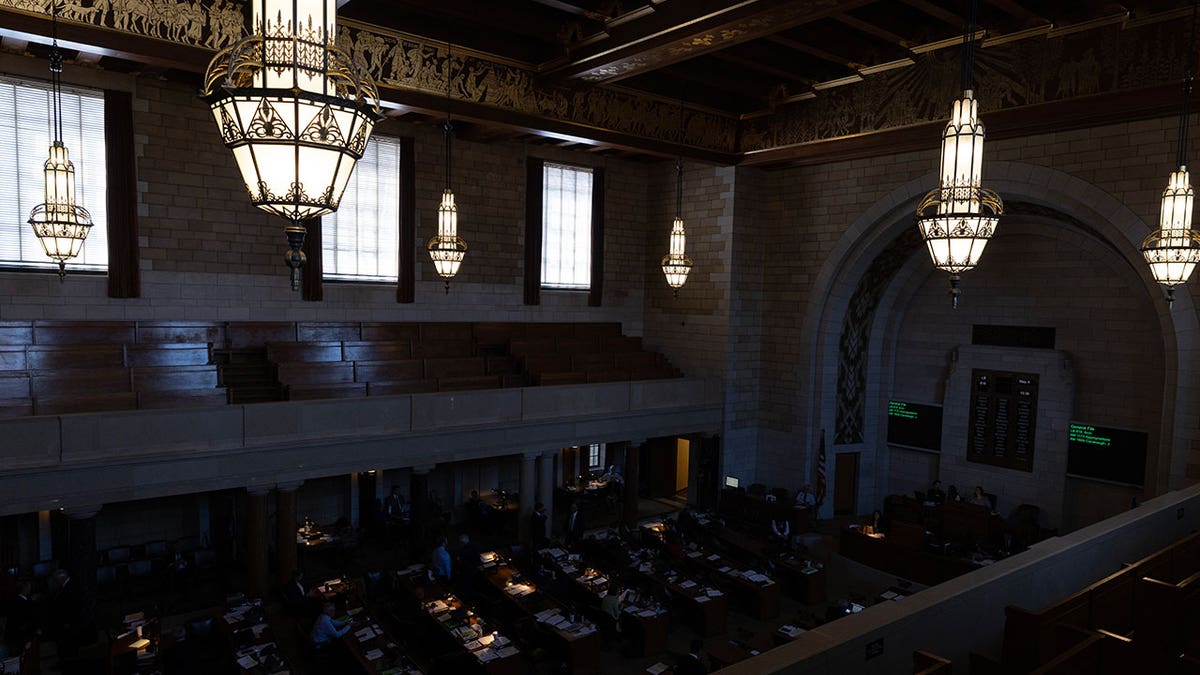How most school choice policies will allow government to ‘destroy’ private schools: Nonprofit president
Sheri Few, president of U.S. Parents Involved in Education, warns that most school choice legislation being passed will end in a regulatory crackdown on private schools.
- Omaha Sen. Lou Ann Linehan has introduced a bill aimed at simplifying the process for removing names from referendum petitions.
- The proposed bill would allow people to remove their names from petitions by sending a signed letter to the Nebraska Secretary of State.
- Linehan alleges that signature gatherers misled constituents into signing the petition to repeal the Opportunity Scholarships Act.
A Nebraska lawmaker behind a new law that allows millions in state income tax to go to private school tuition scholarships is now targeting the referendum petition process that could allow state voters to repeal it.
Omaha Sen. Lou Ann Linehan on Wednesday presented to a legislative committee her bill that would simplify the process of enabling people to remove their names from referendum petitions they had signed earlier.
The bill would allow a person to have their name removed by sending a signed letter to the Nebraska Secretary of State. Currently, the only way a voter can remove their name from a petition is by sending a letter along with a notarized affidavit requesting it.
Linehan said she introduced the bill after hearing from constituents that signature gatherers were using misinformation to get people to sign a petition to put the question of whether to repeal her private school scholarship program on the November ballot.

State senators gather for debate on the Legislative floor of the Nebraska State Capitol in Lincoln, NE, on May 4, 2023. A Nebraska lawmaker behind a new law that allows millions in state income tax to go to private school tuition scholarships is now targeting the referendum petition process that could allow state voters to repeal it. (Rebecca S. Gratz for The Washington Post via Getty Images)
"They were spreading lies about the Opportunity Scholarships Act," she said.
The new law does not appropriate taxpayer dollars directly to private school vouchers. Instead, it allows businesses and individuals to donate up to $100,000 per year of their owed state income tax to organizations that award private school tuition scholarships. Estates and trusts can donate up to $1 million a year. That dollar-for-dollar tax credit is money that would otherwise go into the state’s general revenue fund.
Opponents launched a petition effort immediately after the law passed last year to put the question of whether the state could use public money for private school tuition on the November 2024 ballot. The number of valid signatures gathered far exceeded the number needed, and Nebraska Secretary of State Bob Evnen approved the ballot measure.
Since then, Linehan has sent a letter to Evnen asking him to declare the ballot initiative unconstitutional and pull it from November’s ballot. Supporters of the ballot initiative have sent their own letter asking him to protect Nebraska voters' constitutional right to the referendum petition process.
Clarice Jackson of Omaha testified Wednesday before the Government, Military and Veterans Affairs Committee that she was wrongly told by a signature gatherer outside an Omaha store she visited that the petition effort was to support Linehan's bill.
"I asked her four or five times," Jackson said. "There were 10 to 15 people inside the store who had all been told the same thing and had signed the petition. When I told them that the petition was against school choice, they were upset. They were upset because they were misled."
When they demanded to take their names off the petition, they were told they'd have to file an affidavit signed by a notary and send it to their county election office or the secretary of state's office first, Jackson said.
Linehan, a Republican in the officially nonpartisan Nebraska Legislature, found an unlikely ally for her bill in state Sen. Danielle Conrad, a Democrat. Conrad argued that it should be as easy for a voter to remove their name from a petition as it is to sign it.
One opponent testified that simplifying the process of removing a signature would embolden opponents of any given petition effort to badger signers to then remove their names.
"That happens now," said Conrad, an attorney and former director of the American Civil Liberties Union of Nebraska. "And it is core-protected speech."
The committee will decide at a later date whether to advance Linehan's bill to the full Legislature for debate.






















